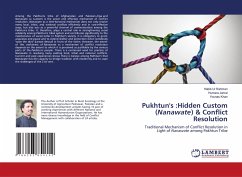This study highlights the parallel justice system which is prevalent in the District Rajanpur, Province of Punjab, Pakistan. It explains why people prefer Jirga for resolving their disputes in the presence of judiciary? This in-depth anthropological investigation illustrates the significance of Sardari system in Baloch culture with special emphasis on the role of Jirga in managing local conflicts. The findings reveal that the institution of Jirga in the Baloch society is as important as their survival. The acceptance of the Jirga by the masses is due to its speedy trial, justice by their own people and without spending money. The Jirga institution is not only their ideal but a symbol of prestige.








